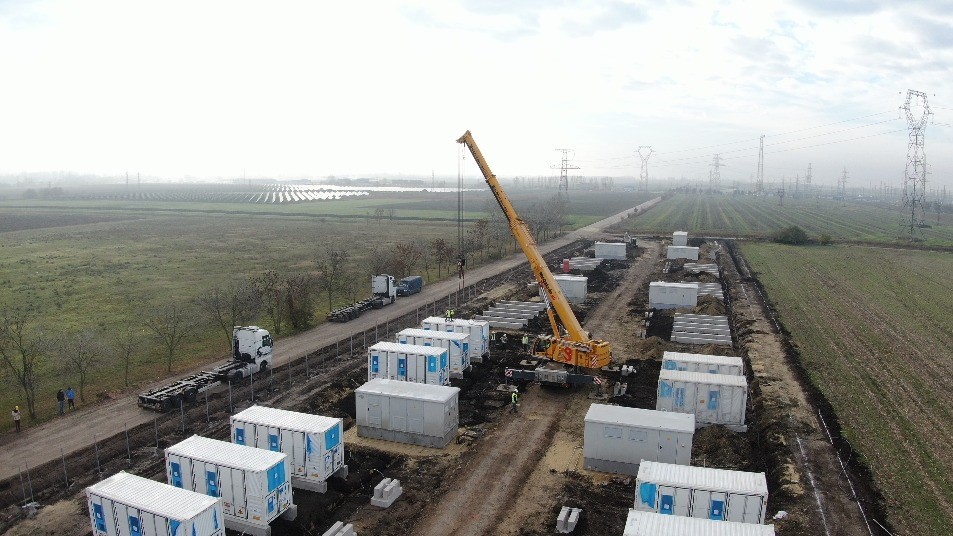Hungary is taking a monumental step towards energy independence and sustainability with the construction of its largest energy storage facility in Szolnok. Parliamentary State Secretary at the Ministry of Energy Gábor Czepek announced the project in a video shared on the Ministry’s Facebook page on Saturday.
Czepek emphasized the critical role of energy storage in ensuring energy sovereignty. ‘Alongside nuclear power, we rely heavily on solar energy, which is weather-dependent and not always generated when needed,’ he explained.
To address this, Hungary has launched multiple initiatives to boost energy storage. A total of 260 billion forints has been allocated to support these projects, with nearly 100 billion forints earmarked for industrial storage facilities and 160 billion for enterprises and households.
Energiaügyi Minisztérium
Magyarország legnagyobb energiatárolója épül Szolnokon Két támogatási program összesen közel 100 milliárd forinttal ösztönzi a hálózati energiatárolók létesítését több mint 60 helyszínen. Az…
The state secretary highlighted Hungary’s progress in greening its energy sector, noting that the country’s solar power capacity has doubled since 2022. Storage infrastructure is also advancing rapidly, with plans to double the current capacity next year and increase it twentyfold by 2026.
The ultimate goal is to achieve at least one gigawatt of storage capacity by 2030, which would enhance Hungary’s ability to manage renewable energy and ensure a cleaner, more reliable, and affordable energy supply.
3.7K views · 60 reactions | Czepek Gábor: Magyarország eddigi legnagyobb energiatárolója épül Szolnokon! A létesítmény berendezéseit ezen a héten több mint harminc kamion… | By Energiaügyi Minisztérium | Facebook
Czepek Gábor: Magyarország eddigi legnagyobb energiatárolója épül Szolnokon! A létesítmény berendezéseit ezen a héten több mint harminc kamion…
‘The Szolnok project contributes to making Hungary’s energy supply cleaner, more predictable, and safer. This is essential for our daily well-being and the competitiveness of our economy,’ Czepek stated.
The Ministry of Energy revealed that Hungary has entered a new era of electricity network upgrades, enhancing flexibility and capacity. Under a programme launched last year to integrate storage into the electricity grid, government funding of 33 billion forints has enabled the installation of 38 megawatts of storage across 13 locations. These developments are set to be completed by the summer of 2025.
The Szolnok project, spearheaded by transmission system operator MAVIR, is the largest of these initiatives. Supported by 15 billion forints, the 20-megawatt facility will be the country’s largest energy storage site upon completion.
Another programme, launched in February 2023 with a 62 billion forint budget, aims to support industrial-scale storage development. This initiative will lead to the installation of approximately 50 industrial energy storage units, covering a combined capacity of 440 megawatts.
Supported organizations must complete these projects, including connecting them to the grid, by spring 2026. Some of these new facilities are expected to exceed the capacity of the Szolnok project, marking an unprecedented expansion of Hungary’s energy storage capabilities.
Hungary’s ambitious energy storage plans reflect its commitment to a sustainable energy transition. With these developments the country is not only enhancing its energy resilience but also positioning itself as a leader in the integration of renewable energy in Central Europe.
Related articles:







